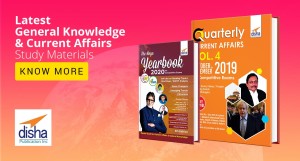National DNA Day commemorates the completion of the Human Genome Project in April 2003 and the discovery of the double helix of DNA in 1953. This year's DNA Day is on Monday, April 25, 2016. Celebrate by participating in the American Society of Human Genetics (ASHG) the 11th Annual DNA Day Essay Contest!
This contest is open to students in grades 9-12 worldwide and asks students to examine, question, and reflect on important concepts in genetics. Essays are expected to be well-reasoned arguments indicative of a depth of understanding of the concepts related to the essay question. They are evaluated by ASHG members through three rounds of scoring.
1st Place Winner:
$1,000 for student
$1,000 genetics materials grant & 5 MiniOne Systems for teacher
2nd Place Winner:
$600 for student
$600 genetics materials grant & 3 MiniOne Systems for teacher
3rd Place Winner:
$400 for student
$400 genetics materials grant & 2 MiniOne Systems for teacher
Honorable Mention: 10 student prizes of $100 each
2016 Question
Choose a genetic test that is currently available for a condition or disease that does not cause symptoms until adulthood
(i.e., an adult-onset condition such as hereditary breast cancer). Describe how the test works and how certain the test results are. Then, either defend or refute the recommendation below from ASHG’s recent position statement on pediatric genetic testing.
"Adolescents should be encouraged to defer predictive or pre-dispositional testing for adult-onset conditions until adulthood because of the complexity of the potential impact of the information at formative life stages."
Deadline: Friday, March 11, 2016, 5:00 pm U.S. Eastern Time
RULES
Essays will be accepted from high school students (grades 9-12) in the US and internationally. A teacher or administrator must submit the essay and authenticate that the submission is the original work of the student. Parents may submit the essays of home-schooled students only. Only one entry may be submitted for each student.
All essays must be written in English and are limited to 750 words, including in-text citations. Essay titles are optional and will be counted towards the word limit. Reference lists do not count toward the 750 word limit.
Each teacher may only submit six student essays per class, for up to three classes.
Essays must be submitted electronically through the ASHG submission site no later than 5:00 pm EST on March 11, 2016. The ASHG submission site will open in early January 2016. Essays mailed, faxed, or emailed to the Society will NOT be accepted. Once submitted, essays cannot be changed or revised.
The text of student essays must be original prose unless quotations are explicitly noted. Plagiarism will not be tolerated. If plagiarism is suspected during any point of the contest, ASHG's Plagiarism Review Board will examine the essay in question. Essays found to contain the uncited work of others will be disqualified, and the student’s teacher will be notified. This video from Carteret Community College Library gives a great overview of what constitutes plagiarism.
• Only classroom teachers or primary instructors of home-schooled children may submit student essays.
• Each teacher is limited to submitting six student essays per class, for up to three classes. Your submission
represents your authentication that the essays are the original work of your students.
• On the following screen, please be prepared to provide
your contact information,
your principal's contact information (if applicable),
your school's address, and
the number of essays you intend to submit.
This information cannot be changed once you submit it.
You will be provided with a link for each class for which you are submitting essays. You will also be sent an email with these links, and have the option of either completing submission of your students' essays immediately, or submitting them at your leisure. Please note that although you may submit essays one by one (even within the same class), you cannot edit an essay once it is submitted.
Questions: Contact dnaday@ashg.org.
This contest is open to students in grades 9-12 worldwide and asks students to examine, question, and reflect on important concepts in genetics. Essays are expected to be well-reasoned arguments indicative of a depth of understanding of the concepts related to the essay question. They are evaluated by ASHG members through three rounds of scoring.
1st Place Winner:
$1,000 for student
$1,000 genetics materials grant & 5 MiniOne Systems for teacher
2nd Place Winner:
$600 for student
$600 genetics materials grant & 3 MiniOne Systems for teacher
3rd Place Winner:
$400 for student
$400 genetics materials grant & 2 MiniOne Systems for teacher
Honorable Mention: 10 student prizes of $100 each
2016 Question
Choose a genetic test that is currently available for a condition or disease that does not cause symptoms until adulthood
(i.e., an adult-onset condition such as hereditary breast cancer). Describe how the test works and how certain the test results are. Then, either defend or refute the recommendation below from ASHG’s recent position statement on pediatric genetic testing.
"Adolescents should be encouraged to defer predictive or pre-dispositional testing for adult-onset conditions until adulthood because of the complexity of the potential impact of the information at formative life stages."
Deadline: Friday, March 11, 2016, 5:00 pm U.S. Eastern Time
RULES
Essays will be accepted from high school students (grades 9-12) in the US and internationally. A teacher or administrator must submit the essay and authenticate that the submission is the original work of the student. Parents may submit the essays of home-schooled students only. Only one entry may be submitted for each student.
All essays must be written in English and are limited to 750 words, including in-text citations. Essay titles are optional and will be counted towards the word limit. Reference lists do not count toward the 750 word limit.
Each teacher may only submit six student essays per class, for up to three classes.
Essays must be submitted electronically through the ASHG submission site no later than 5:00 pm EST on March 11, 2016. The ASHG submission site will open in early January 2016. Essays mailed, faxed, or emailed to the Society will NOT be accepted. Once submitted, essays cannot be changed or revised.
The text of student essays must be original prose unless quotations are explicitly noted. Plagiarism will not be tolerated. If plagiarism is suspected during any point of the contest, ASHG's Plagiarism Review Board will examine the essay in question. Essays found to contain the uncited work of others will be disqualified, and the student’s teacher will be notified. This video from Carteret Community College Library gives a great overview of what constitutes plagiarism.
• Only classroom teachers or primary instructors of home-schooled children may submit student essays.
• Each teacher is limited to submitting six student essays per class, for up to three classes. Your submission
represents your authentication that the essays are the original work of your students.
• On the following screen, please be prepared to provide
your contact information,
your principal's contact information (if applicable),
your school's address, and
the number of essays you intend to submit.
This information cannot be changed once you submit it.
You will be provided with a link for each class for which you are submitting essays. You will also be sent an email with these links, and have the option of either completing submission of your students' essays immediately, or submitting them at your leisure. Please note that although you may submit essays one by one (even within the same class), you cannot edit an essay once it is submitted.
Questions: Contact dnaday@ashg.org.














No comments:
Post a Comment
Thank you for leaving your comment. Your comment will appear here after moderated by the administrator. Only comments having proper names of the person with a genuine content will be considered for publishing.